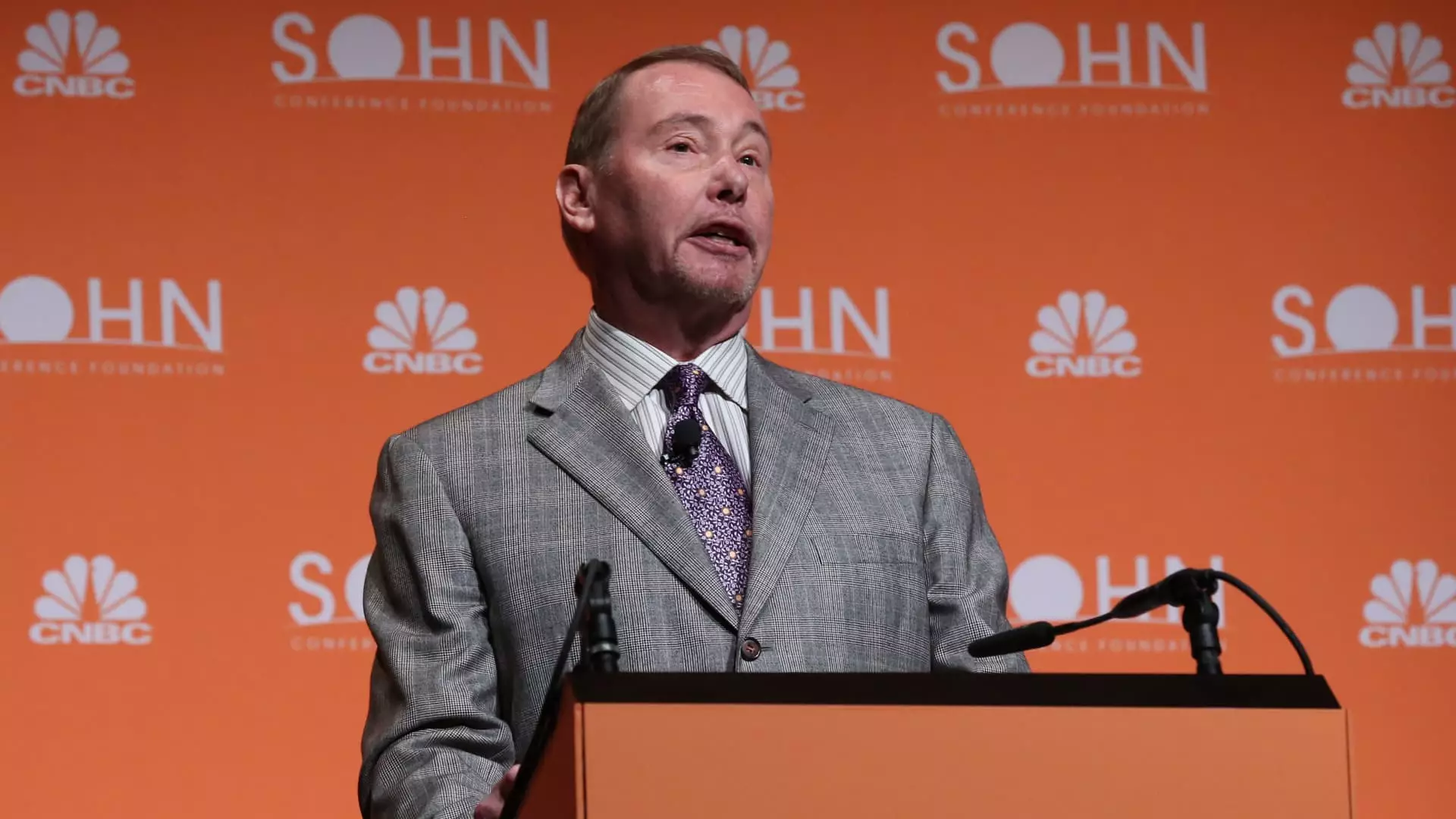In a recent interview, DoubleLine Capital’s CEO, Jeffrey Gundlach, emphasized the potential consequences of the Republican Party gaining control of the House of Representatives. With President-elect Donald Trump poised to take office, Gundlach foresees a significant uptick in government spending, which could lead to unprecedented levels of borrowing. As the political climate shifts, it raises critical questions about the future trajectory of interest rates and the Federal Reserve’s policies.
Gundlach’s assessment suggests that if the Republican Party secures a governing trifecta, the newly elected administration could implement expansive fiscal policies without the usual constraints. With an expectation of increased Treasury issuance to fund government initiatives, investors could see a rise in bond yields. “The dynamics in Washington point towards a higher likelihood of debt accumulation,” Gundlach asserted, highlighting concerns over the potential impact on interest rates. Historically, heightened borrowing correlates with increased long-term interest rates, amplifying financial burdens for both the government and consumers.
As of the latest reports, the United States is grappling with a staggering budget deficit, exceeding $1.8 trillion for fiscal 2024. This figure is particularly alarming considering that more than $1.1 trillion of that deficit is earmarked for servicing the national debt, which stands at a staggering $36 trillion. Gundlach’s alarm bells are ringing louder than ever, as these fiscal realities present formidable challenges that necessitate serious introspection among policymakers. The central bank’s recent rate cuts add another layer of complexity as it struggles to balance economic growth while addressing inflationary pressures.
Gundlach pointed out that Trump’s intentions to cut taxes and promote pro-cyclical stimulus could exacerbate the fiscal landscape significantly. In extending the tax cuts from 2017 or initiating new reductions, the resultant debt could further derail economic stability. However, there is an interesting twist in Gundlach’s prognosis regarding recession. He argues that the Trump administration might reduce the odds of a near-term recession. This viewpoint underscores a fundamental shift in sentiment about post-election economic stability, revealing a dichotomy between fiscal responsibility and growth-oriented policies.
Not only is Gundlach troubled by the impending fiscal pressures, but he also represents a broader concern among investors regarding the sustainability of economic growth amidst mounting debt. His predictions reflect a tension between short-term market optimism and long-term economic sustainability. As the Federal Reserve navigates this precarious landscape, its decisions will be closely scrutinized, given their potential ramifications on interest rates and overall economic health.
As the political landscape solidifies and a new administration takes control, investors must remain vigilant. Gundlach’s insights serve as a crucial reminder that the intersection of politics and economics will significantly shape interest rates in the near future. The evolving economic narrative will depend heavily on the decisions made in Washington and the Federal Reserve’s responses to unprecedented government borrowing and fiscal policy shifts.

